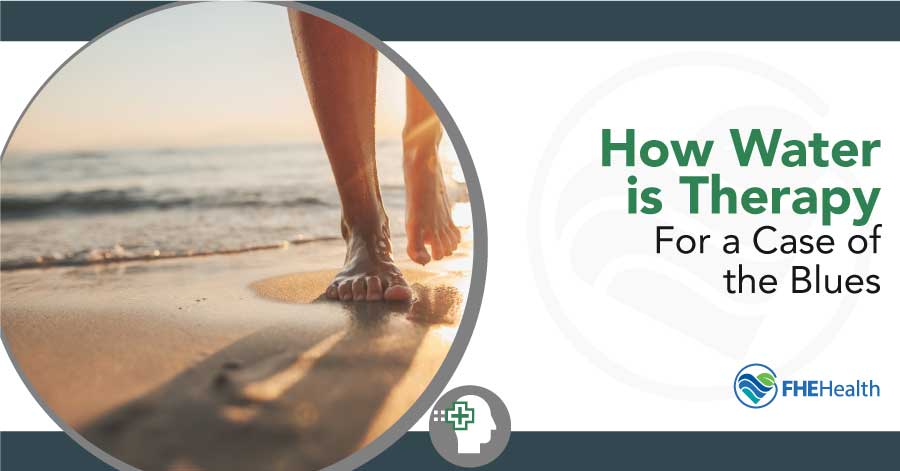
Seastorms, hurricanes, seasonal flooding. No matter. In the U.S., more than 94 million people live near the coast (Atlantic, Pacific, or Gulf of Mexico coastlines), which translates to almost 30 percent of the population. If you include cities like Chicago, Milwaukee, and Salt Lake City, that number grows by millions more.
It’s true that many coastal cities evolved along with industries. Waterways are extremely practical for shipping goods and people. But, perhaps, transportation isn’t the only reason why humans love to live near or visit locations on the water. Some of the most popular vacation destinations worldwide are located on the water. Hotels, resorts, villas—they all charge premium pricing for the best ocean or lake views, and whole tourist industries are focused on cruising, water sports, and beach life.
What Is Water Therapy for Mental Health?
Of course, there’s a long history of water-based therapies for health that stretches back to the ancient world. Hippocrates, known in the West as the Father of Medicine, prescribed spring water bathing to treat a myriad of ills. Ancient Greeks, Romans, and Egyptians relied heavily on the therapeutic benefits of seawater, freshwater, and heated water. In the East, the Chinese and Japanese also constructed elaborate bathing houses and rituals to enjoy the healing and hygiene benefits of water.
People have long found that water helps to soothe away aches and ease joint pain associated with conditions like arthritis. But water doesn’t simply enhance physical comfort. It also enhances mental health too. Simply walking along a beach can help alleviate some symptoms of the blues, at least for a period of time. People who are suffering from depression or anxiety may find, like humans have for centuries, that spending time at the coast helps them to feel refreshed and relaxed.
Can the Beach Help Alleviate Depression? What’s the Medical Evidence on Water Therapy for Mental Health?
When someone is feeling blue or highly stressed, spending a day at the beach can boost one’s mood. In fact, there have been studies that demonstrate the mental health benefit of being near water. According to The Washington Post, researchers at Michigan State University conducted a study involving people who lived near blue spaces (i.e. the Pacific Ocean and Tasman Sea) and people who lived near green spaces (forests or parks). Those who lived near the sea reported less mental stress.
Another study out of the UK reported similar findings. According to that research, people who lived closer to the sea were 22 percent less likely to experience a mental health disorder than those who lived 50 kilometers or more from the sea. An interesting component of this study also showed that the benefit extended even to people living in households with reduced income.
The American Journal Association for the Advancement of Science stated that staring at blue spaces such as the ocean or a large lake can actually change the frequency of brain waves, inducing a mild meditative state. The benefit to mood goes beyond the blue space visuals too. The sound of waves on the shore can ‘de-stimulate’ the brain to enhance our feeling of calm.
What Mental Health Benefits Does Water Therapy Have?
People who live near the water are often active. That means that they have the added benefit of exercise, which can greatly diminish symptoms of depression and anxiety. Exercise releases feel-good endorphins that target sore muscles to induce healing. These endorphins also flood the brain where they have the effect of boosting mood. Consequently, enjoying a walk on the beach enhances mood in multiple ways that are physical and psychological in nature.
Walking is just one way to exercise near the beach. Many people ramp up their positive beach experience by practicing yoga, jogging, or swimming. Others combine their need for activity with social experiences like kayaking with a friend or playing beach volleyball. This activity promotes both physical and mental health. If the sun is shining—even better. Sunshine can also boost mood and fulfill our needs for vitamin D.






